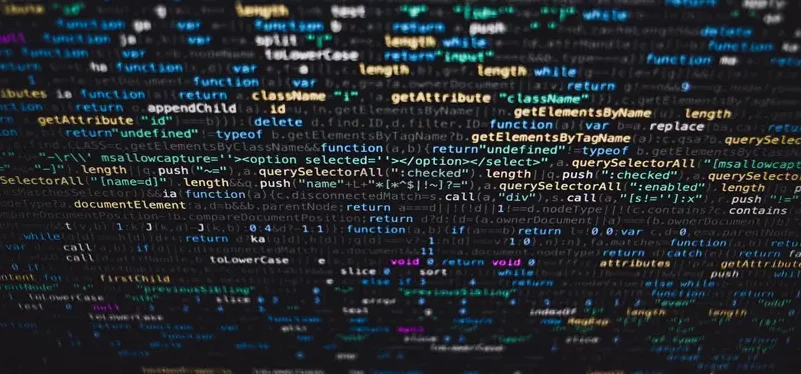Introduction
The rapid evolution of cryptography and privacy technologies has brought us to a pivotal moment where privacy computing and zero-knowledge proofs (ZKPs) are starting to gain significant attention. As digital transactions, data sharing, and online interactions increase, so do concerns over privacy, data security, and the potential for surveillance. In this context, privacy computing and ZKPs have emerged as cutting-edge technologies designed to address these concerns while ensuring that the integrity of data and transactions is maintained.
But will these technologies become the next core trends in the cryptographic landscape? Are privacy computing and ZKPs truly poised to revolutionize industries such as finance, healthcare, and beyond? This article will delve into the principles of privacy computing and zero-knowledge proofs, explore their potential applications, and analyze whether they will become essential elements of the future cryptographic ecosystem.
Section 1: Understanding Privacy Computing
1.1 What is Privacy Computing?
Privacy computing refers to the set of technologies that allow for the processing and analysis of encrypted data without revealing the data itself. This enables secure computations and data-sharing operations without exposing sensitive information. Some of the key technologies in privacy computing include:
- Homomorphic Encryption (HE): This encryption scheme allows computations to be performed on encrypted data without decrypting it first. It preserves privacy while enabling data analysis.
- Secure Multi-Party Computation (SMPC): This technique allows multiple parties to jointly compute a function over their private inputs while keeping those inputs secret from each other.
- Trusted Execution Environments (TEEs): These are hardware-based security mechanisms that ensure computations are performed in an isolated environment, keeping sensitive data secure even from the host system.
1.2 Why is Privacy Computing Important?
As the world becomes increasingly data-driven, organizations need ways to process and analyze data without compromising privacy. Traditional models often require the decryption of sensitive information, making it vulnerable to data breaches and misuse. Privacy computing addresses this gap by allowing data to remain encrypted throughout the entire process, enabling secure data sharing and privacy-preserving analytics.
Key benefits of privacy computing include:
- Data Sovereignty: It ensures that data remains under the control of the data owner, enabling secure data exchanges across borders and industries.
- Compliance with Privacy Regulations: Privacy computing can help organizations comply with privacy laws such as GDPR and CCPA, which demand stringent protections for personal data.
- Collaboration: It enables organizations to collaborate and share sensitive data without exposing proprietary or personal information, opening up new possibilities for joint ventures and research.
Section 2: What are Zero-Knowledge Proofs (ZKPs)?
2.1 Introduction to Zero-Knowledge Proofs
A zero-knowledge proof (ZKP) is a cryptographic protocol that allows one party to prove to another party that they know a piece of information (e.g., a password, a secret key, or an answer to a mathematical problem) without revealing the actual information. The core concept is that the verifier learns nothing about the secret other than the fact that the prover possesses it.
For example, a ZKP can demonstrate that a person knows the solution to a puzzle without revealing the solution itself, thereby maintaining privacy while providing proof of knowledge.
2.2 Types of Zero-Knowledge Proofs
There are two main types of ZKPs:
- Interactive ZKPs: These require interaction between the prover and the verifier through multiple rounds of communication.
- Non-Interactive ZKPs (NIZKPs): These allow the prover to send a single message to the verifier, which makes them more efficient for practical applications such as blockchain.
2.3 Why Are Zero-Knowledge Proofs Important?
ZKPs are powerful because they allow for privacy-preserving authentication, enabling users to prove certain facts without revealing their private information. This has numerous applications in various sectors:
- Blockchain and Cryptocurrencies: ZKPs are used in blockchain technologies, such as Zcash and Ethereum 2.0, to enable private transactions and proofs of solvency or transaction validity without exposing any transaction details.
- Digital Identity: ZKPs enable secure identity verification where users can prove their identity (or aspects of it) without disclosing sensitive personal information, enhancing online privacy and reducing the risk of data breaches.
- Access Control: ZKPs can be used to prove that a user is authorized to access a system or perform an action without revealing their credentials, thereby mitigating the risk of password-based attacks.

Section 3: Will Privacy Computing and ZKPs Become the Core Trend in Cryptography?
3.1 The Growing Need for Privacy and Security
As more aspects of our lives move online, the demand for privacy and data protection continues to grow. Data breaches, identity theft, and surveillance are concerns that are increasingly affecting individuals and businesses alike. Governments and organizations are under pressure to enhance privacy protections, especially in the wake of privacy laws such as the GDPR (General Data Protection Regulation) in Europe.
In this context, both privacy computing and ZKPs offer essential solutions that could become mainstream in cryptography. The question is whether they will become the dominant forces in the cryptographic landscape in the coming years.
3.2 Privacy-Preserving Technologies in the Context of Blockchain
Blockchain technology has already shown how cryptography can be used to enable decentralized systems, but one of the challenges has been privacy. Traditional blockchain systems like Bitcoin or Ethereum are transparent, meaning all transactions are visible to the public. This transparency is at odds with the need for privacy in various use cases, such as financial transactions or personal data.
- ZKPs are already making a significant impact in this area. The introduction of zk-SNARKs (zero-knowledge succinct non-interactive arguments of knowledge) in Zcash and Ethereum 2.0 is a prime example of how ZKPs can ensure privacy on the blockchain. By using ZKPs, transactions can be validated without revealing the sender, receiver, or transaction amount.
- Privacy computing could further enhance blockchain systems by enabling private smart contracts and enabling the execution of computations on encrypted data without revealing the underlying information.
In the coming years, as more blockchain platforms adopt privacy-preserving technologies, both privacy computing and ZKPs could become core features of decentralized finance (DeFi), NFTs, and other blockchain-based applications.
3.3 The Role of Privacy in Data Sharing and Compliance
As industries like healthcare, finance, and e-commerce generate massive amounts of sensitive data, the ability to share that data securely while maintaining privacy will be critical. Privacy computing can play a vital role in enabling secure collaboration between organizations without exposing sensitive data.
- In healthcare, for example, privacy computing could allow researchers to run analyses on patient data without revealing any individual’s private medical information.
- In finance, privacy-preserving technologies could enable financial institutions to share data for fraud detection, risk analysis, or regulatory compliance while keeping sensitive customer information private.
- With the growing focus on data sovereignty and privacy laws, privacy computing can help organizations comply with regulations without sacrificing the utility of their data.
3.4 The Challenges of Widespread Adoption
While privacy computing and ZKPs show immense promise, there are several challenges to their widespread adoption:
- Complexity and Computation Overhead: Privacy computing techniques such as homomorphic encryption can be computationally expensive and slow. This can make them impractical for large-scale applications unless further advancements in performance are made.
- Scalability Issues: ZKPs, particularly in blockchain applications, can also face challenges related to scalability. While non-interactive ZKPs like zk-SNARKs are more efficient, the technology is still evolving, and scaling it for widespread use in high-volume applications is a challenge.
- Regulatory Concerns: As privacy technologies gain prominence, regulators will need to address the potential misuse of these technologies, especially in sectors such as finance or digital identity. Striking a balance between privacy and compliance will be crucial.
3.5 The Future Outlook
Despite the challenges, the outlook for privacy computing and zero-knowledge proofs is positive. Both technologies are gaining traction in blockchain ecosystems, privacy-preserving applications, and industries that require data security. As demand for privacy grows, the development of more efficient algorithms and scalable solutions will make these technologies increasingly viable for mainstream adoption.
Section 4: Conclusion
Privacy computing and zero-knowledge proofs are not just niche concepts in cryptography—they represent the future of privacy-preserving technologies. With growing concerns over data privacy, surveillance, and security, both privacy computing and ZKPs have the potential to become core components of the next wave of cryptographic advancements.
Their applications span a wide range of sectors, from blockchain to digital identity and data sharing, making them indispensable tools in creating a more secure, private, and compliant digital ecosystem. While challenges remain, the ongoing development and adoption of these technologies suggest that they are poised to become integral to the future of cryptography.
As we move toward a more privacy-conscious and data-sensitive world, it is clear that privacy computing and zero-knowledge proofs will play a key role in defining the next generation of cryptographic innovation.













































